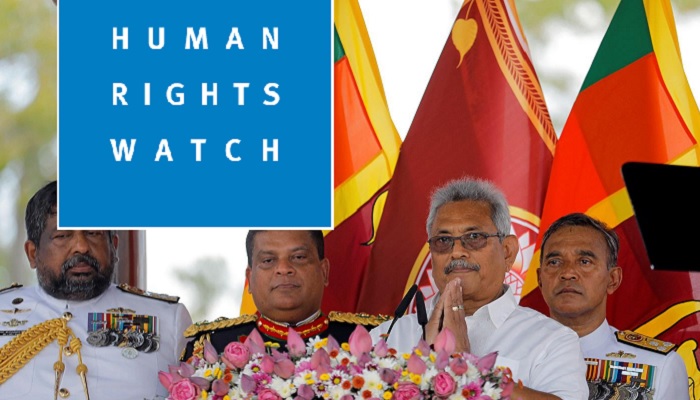The European Parliament today sent a powerful message to Sri Lanka’s government that its growing human rights violations will no longer be tolerated and may jeopardize bilateral and trade relations.
The resolution draws attention to abuses under the notorious Prevention of Terrorism Act (PTA), which has long enabled prolonged arbitrary detention, torture and sexual abuse. The government is using the law to target members of minority communities and civil society, including activists, lawyers, and writers. The resolution specifically mentions Hejaaz Hizbullah, a prominent lawyer, and Ahnaf Jazeem, a poet, who are both arbitrarily detained under the act.
The European Parliament also denounced the Sri Lankan government’s obstruction of efforts to secure accountability for widespread human rights abuses during the country’s decades-long civil war. The resolution notes that several current and former military commanders implicated in serious abuses have been appointed to senior government positions. In March, the United Nations Human Rights Council mandated a new effort to collect and analyze evidence for use in future trials.
The European Parliament resolution provides a grim, but accurate, picture of “Sri Lanka’s alarming path towards the recurrence of grave human rights violations.” Among numerous issues highlighted are discrimination against ethnic and religious minorities, the situation of LGBT people, and a crisis of labor rights in garment factories.
Since 2017, Sri Lanka has benefited from a trading arrangement with the European Union called GSP+ which provides better access to European Union markets in return for progress implementing international human rights treaties. The resolution recalls that “one of the key commitments of Sri Lanka was to fully align its counter-terrorism legislation with international human rights conventions,” and calls upon the European Commission to “use the GSP+ as a leverage to push for advancement on Sri Lanka’s human rights obligations.”
Crucially, the resolution calls on the European Commission to urgently evaluate its funding for a UN project to support Sri Lanka on counter-terrorism. It instead calls for the EU and member states to increase support for Sri Lanka’s civil society.
The Sri Lankan government needs to realize that its international partners are watching with concern, and that friends around the world can act to promote fundamental rights in Sri Lanka.


